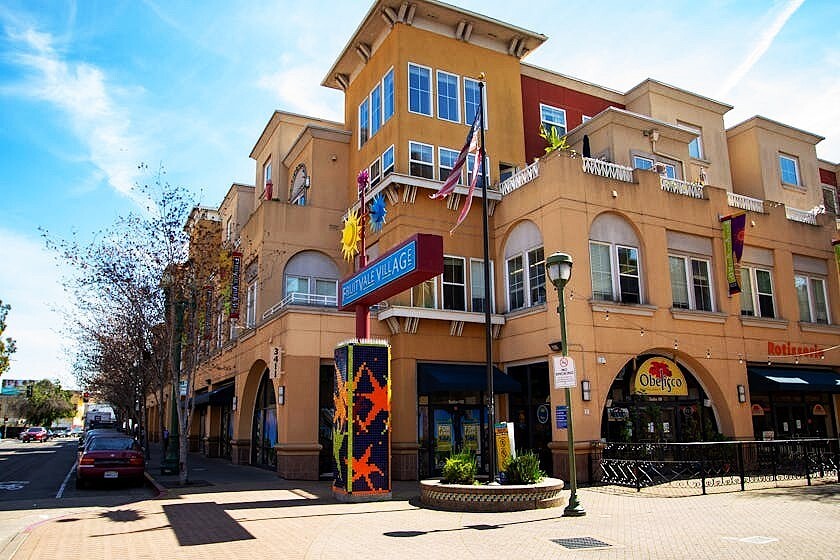This Is How To Utilize Expert Leadership In Passive Investing
October 24th, 2024
5 min read

In retail property investing, the sponsor plays a key role in everything from acquisition to tenant mix, rent strategy, and local relationships. A strong sponsor brings sharp market insight, a deep industry network, a respected reputation, and local civic ties. Choosing the right sponsor means aligning their capabilities with your investment goals and risk expectations.

Forget the doom and gloom – shopping centers aren't dead; they're evolving!
While e-commerce giants like Amazon have reshaped the retail landscape, savvy investors are uncovering golden opportunities in brick-and-mortar spaces.
For example, shopping center owners and investors have expanded their focus beyond traditional retailers like department stores. Now, brick-and-mortar spaces often feature unconventional and experimental retail users like gyms, entertainment venues, and specialty dining options.
When managed correctly, shopping centers generate consistent cash flow, making them a compelling option for real estate investors.
A thriving shopping center is characterized by a carefully curated mix of high-quality tenants—businesses that reliably pay rent, contribute to the property's overall success, and appeal to the target demographic. In the retail real estate industry, experienced professionals known as "sponsors" are responsible for attracting and retaining these valuable tenants.
Of course, as a passive investor, you need to be in the position to manage a shopping center directly. By learning about sponsors, you can ensure that the firms you work with collaborate with the right sponsors to generate high returns.
This article explores how sponsors play a pivotal role in the success of a shopping center property and what skills to look for when choosing a sponsor to work with.
Understanding the Sponsor: Architects of Retail Success
Within the retail real estate industry, sponsors refer to experienced professionals responsible for acquiring and managing a specific property type.
Sponsors’ multifaceted role encompasses several critical functions that directly impact a shopping center's performance:
1. Strategic Rent Adjustment
Once a shopping center is acquired, the first job of a sponsor is to evaluate the property's rent levels and adjust them to align with current market conditions, making them profitable for both the tenants and shopping center management.
Creating the right rent level requires a delicate touch and immense knowledge of the industry and market, as there are significant risks with having rents that are too high or too low.
Sponsors must balance rents between the extremes, either too high or too low.
- For example, when shopping center tenants pay above-market rents, the chances of them not renewing their leases rise. Non-renewed leases create vacancies in shopping centers, which often need to be filled more.
A knowledgeable, experienced sponsor will recognize the dangers of implementing above-market rents and strategically adjust higher rents downward. This will ensure that these tenants are retained unless a natural replacement is ready to take over the space.
- On the other hand, when rents are too low, the property can attract tenants with low financial stability or reputations for operating poorly.
While this might not initially sound like a problem, it also means that there is a waiting list of more desirable tenants willing to pay higher rents and have a higher level of appeal to customers. Sponsors can strategically swap out lower-paying tenants with higher-value ones by buying out existing leases or by waiting for the leases to expire.
2. Leveraging Industry Networks to Attract Anchor Tenants
Fundamentally, the success of a shopping center investment heavily relies on the sponsor’s ability to attract and retain high-quality tenants. A sponsor must be highly knowledgeable, have a widespread network, and have an ironclad reputation in the retail real estate industry.
In this industry, in particular, a sponsor's connections with key individuals and companies can greatly impact the success of a shopping center investment.
The Impact of Anchor Tenants
Another important component of driving foot traffic to shopping centers is “anchor tenants.” This term refers to large, well-known retail brands, typically national brands like T.J. Maxx, Hobby Lobby, or Dress for Less. Anchor tenants are usually selective about the sponsors they work with and the spaces they choose to occupy.
A sponsor’s connections and reputation come into play here, as established sponsors with solid relationships in the retail industry have an advantage in securing anchor tenants over more unknown sponsors trying to do the same.
Overall, a sponsor’s ability to leverage their network and reputation strategically is essential to filling a shopping center with high-quality and anchor tenants who draw additional customers to the property.
3. Reputation Management
A sponsor's reputation in the industry is crucial in tenant recruitment and retention processes.
Understandably, high-quality tenants prefer working with sponsors who are well-known for their ethical practices, reliability, and overall ease of collaboration. Investors should remember this, as a sponsor with a positive reputation will attract and retain tenants more easily, which creates a stable occupancy rate and consistent cash flow for the property.
Not only can a sponsor with a positive reputation enhance the success of a shopping center, but a sponsor with a negative reputation can have the opposite effect.
For instance, if a sponsor has a reputation for being difficult to work with, it can deter potential tenants from doing business with them and ultimately make it harder to maintain high occupancy rates.
4. Market Analysis and Adaptation
Effective tenant recruitment and retention does not end with a sponsor fostering connections within the retail industry. Thorough research and market understanding are also required.
Before acquiring a property, a sponsor studies the local market. They identify potential tenants who align with the shopping center’s demographic and location requirements. The research the sponsor gathers helps them attract tenants likely to succeed in the space, contributing to the shopping center's success.
Successful sponsors conduct thorough market research to:
- Identify potential tenants aligned with the shopping center's demographic and location
- Anticipate and adapt to changing market conditions
- Explore innovative leasing strategies
Innovative Tenant Mix Strategies
Sometimes, tricky market conditions require the sponsor to think creatively, drawing in tenants who exceed traditional retail expectations.
For example, a sponsor might bring alternative tenants like medical practices or office spaces. These unconventional tenants can provide stable and reliable rent even in fluctuating retail markets.
Adapting to unpredictable market conditions and finding the right tenants for a specific property is critical for a successful investment strategy.
5. Cultivating Local Connections
For a sponsor, local connections are equally important as networking connections with national companies. Forming and maintaining strong relationships with local businesses and regional government entities provides additional opportunities for sponsors to recruit tenants and secure favorable lease agreements.
Ties to the local community can be very useful when the sponsor must navigate relationships with non-retail tenants or when navigating local regulations. These local connections can be the secret ingredient that turns a good shopping center into a great one.
The Value of an Experienced Sponsor
Investing in shopping centers offers significant potential for consistent cash flow and long-term wealth generation. However, realizing this potential requires more than just acquiring prime real estate — it demands a partnership with a skilled and experienced sponsor.
A proficient sponsor brings to the table:
- Expertise in strategic rent adjustment
- A robust network of industry connections
- A strong, positive reputation in the retail sector
- In-depth market knowledge and adaptability
- Valuable local and regional relationships
When these elements are effectively leveraged, they substantially contribute to the shopping center's success and, consequently, to investors' financial returns.
Utilizing Sponsors in Retail
An experienced sponsor brings more than just a wealth of knowledge to a shopping center management team. A sponsor also brings the skills to adjust rent appropriately, attract high-quality tenants through established networks, and leverage a strong industry reputation. Additionally, sponsors are equipped to conduct detailed research and adapt to market conditions to ensure a property remains profitable.
When the sponsor implements all of these components correctly, they greatly contribute to the overall success of the shopping center and, in turn, to the financial returns for investors.
For investors considering retail real estate opportunities, careful evaluation of potential sponsors should be a top priority. The right sponsor can transform a good investment into an exceptional one, navigating the complexities of tenant management to drive sustained success and profitability in the evolving brick-and-mortar retail world.
Topics:



























